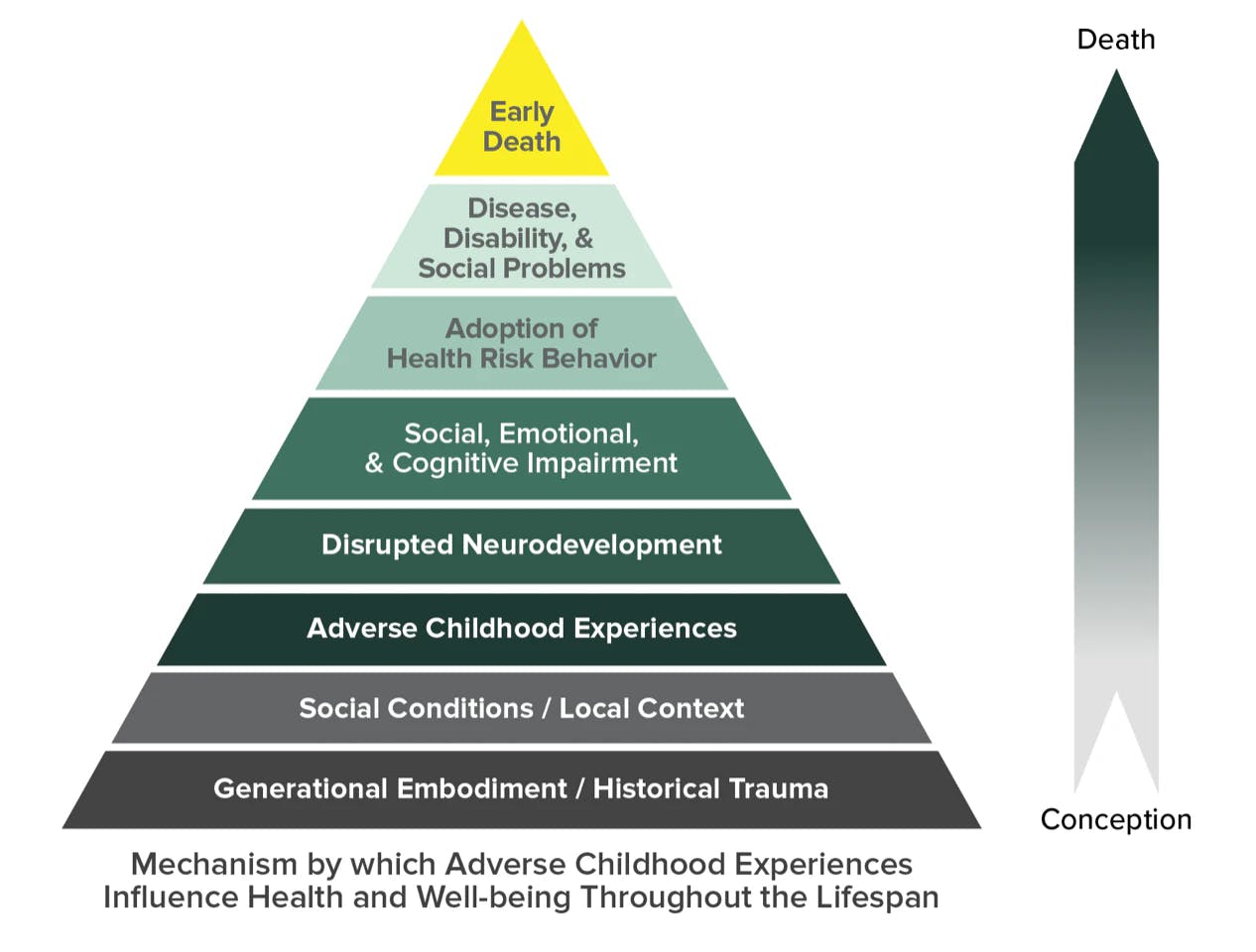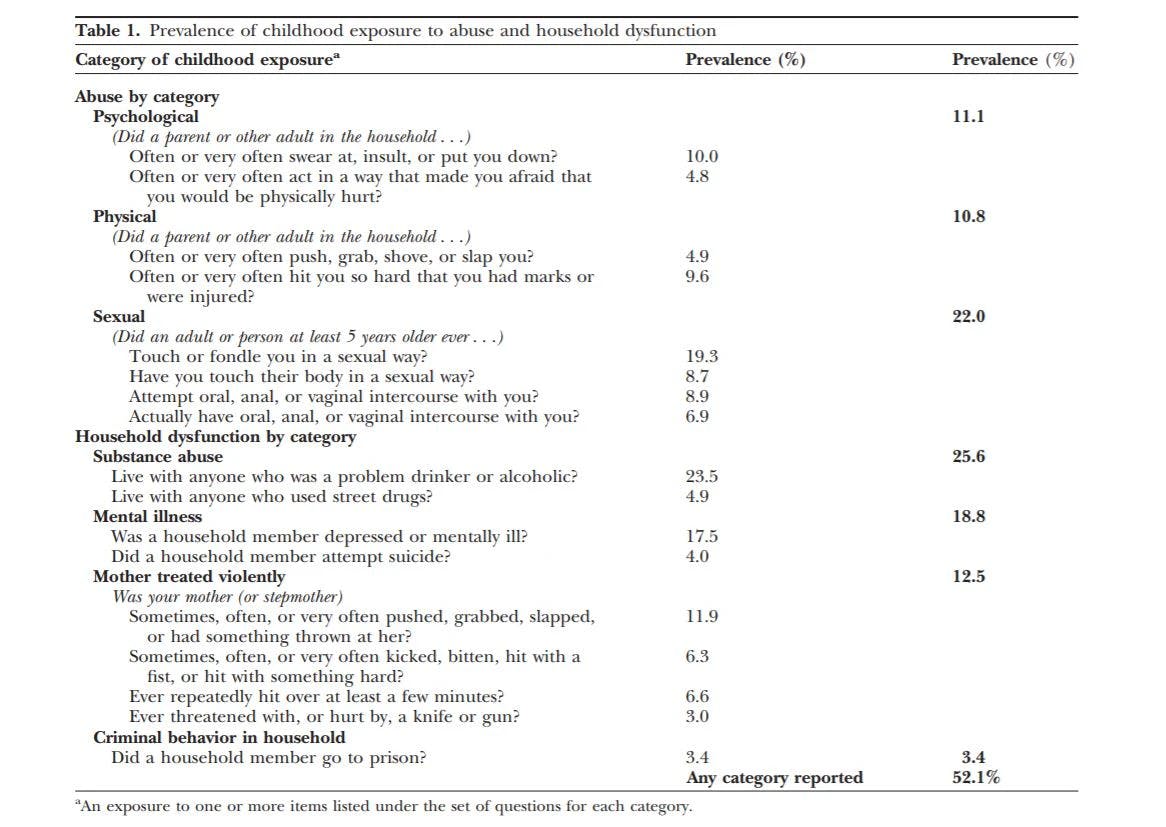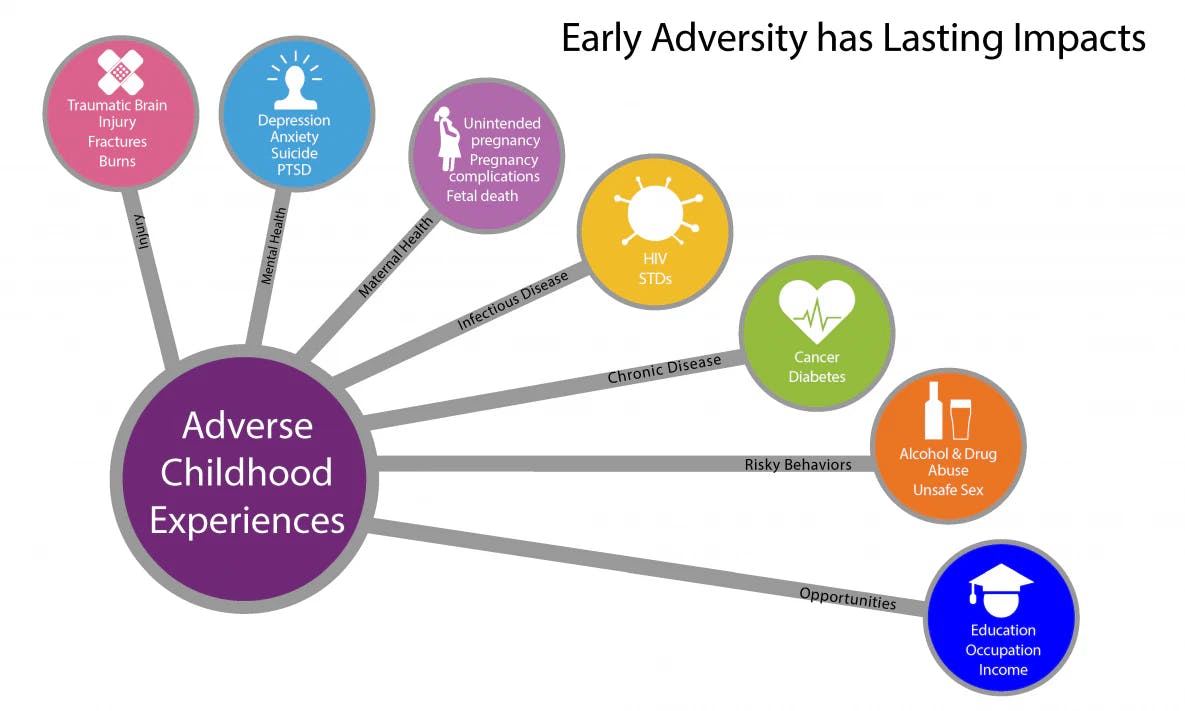Childhood Trauma Can Affect Your Physical Health As Well As Your Mental Health
When we’re pursuing health, we’re told to eat whole foods and drink water, exercise regularly, get enough sleep and sunshine, and reduce stress. But has your doctor ever mentioned that your current health issues could have been caused by your childhood?

We’re pretty familiar with the idea that our upbringing impacts our self-image, our outlook on life, and our communication methods. But did you know that your childhood — specifically negative experiences — can also impact your physical health, even decades later?
The ACE Study
In 1998, a breakthrough study brought the correlation between childhood trauma and adult health issues to light. Colloquially called the ACE study (Adverse Childhood Experiences), this study revealed the long-term impact that childhood trauma has on adult health, quality of life, and early death.

In the study, participants were asked if they had experienced trauma or household dysfunction as children (up to age 18) in seven categories: psychological, physical, or sexual abuse, violence against their mother/step-mother, or living with household members who were alcoholics, drug users, mentally ill, suicidal, or criminal/imprisoned. Participants also filled out a health history questionnaire that covered topics such as how many sexual partners they’ve had, STDs, smoking, drug and alcohol use, obesity, cancer, broken bones, and heart, lung, or liver disease.

The study revealed a graded relationship: People who had suffered from multiple kinds of trauma had higher incidences of poor health and health risk behaviors, whereas people who suffered from none or one trauma had fewer to no health issues. For example, people who had experienced trauma in four or more categories were 12 times more likely to be suicidal. Furthermore, 17% of participants who had experienced four or more kinds of trauma reported three health issues or risk behaviors (compared to only 4% of participants with no trauma). 56% of participants with no childhood trauma had zero health issues.

So what’s the reason behind this association? What links childhood trauma to, say, getting lung cancer in your 40s? The researchers' theory is that many of these adult health issues are centered on behaviors that initially could have been (unhealthy) coping mechanisms. Smoking, drinking, drugs, and sex can all be used to alleviate emotional pain and self-soothe. If the unhealthy coping mechanism is somewhat effective, the person will keep using it, and it becomes chronic or habitual. Let’s say an abused child starts smoking as a teenager to help cope with their pain and stress...and they keep smoking for 30 years. Their chance of getting lung cancer, and possibly dying early, has now increased.
Many of these adult health issues are centered on behaviors that initially could have been (unhealthy) coping mechanisms.
Other explanations for the link are that ACEs, and the chronic stress they cause, can impact a person’s attitude towards health and healthy living, impede their physical and emotional development, cause inflammation, or disrupt other systems in the body.
Other Findings Inspired by the ACE Study
Other studies have since used the ACE study as a springboard to examine other adult health issues. And the same pattern of graded relationship has appeared in each and every one: More ACEs = increased frequency of headaches in adulthood. More ACEs = increased risk of depressive disorder decades after the trauma has ended. More ACEs = increased likelihood of getting hospitalized and diagnosed with an autoimmune disease as an adult. ACEs can even impede fertility and may play a role in causing PCOS and Endometriosis because chronic stress interferes with the reproductive hormone pathways. (These are just a few studies. If you want to see more studies and other resources, click here.)

What To Do If You Think Your Own Childhood Trauma Is Impacting Your Health Right Now
If you’re suffering from a health issue right now and you experienced childhood trauma, definitely tell your doctor! You don’t need to tell your doctor the details of your trauma if you’re not comfortable doing that. But by at least alerting your doctor to that part of your mental, emotional, and even physical or sexual history, it can help you receive whole-person treatment.
Time does not heal; time conceals.
I would also encourage you to seek healing for your trauma. Go to counseling. Join a support group. Healing your mind and emotions from your trauma is just as important as seeking medical, physical help for your body.
Closing Thoughts
The lead doctor on the ACE study, Dr. Vincent Felitti, wrote, “What happens in childhood — like a child’s footprints in wet cement — commonly lasts throughout life. Time does not heal; time conceals.”
We’re made up of our experiences, whether we like it or not. And sometimes those experiences manifest themselves in unexpected, and unhealthy, ways. But if we can have the courage to seek healing for the root cause — our childhood trauma — we can help ourselves mentally, emotionally, and physically.